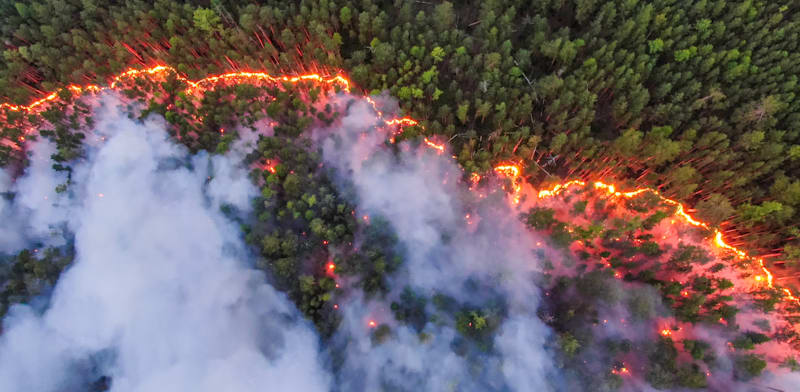Our managing partner Jonathan Benartzi argues at a Globes Article that tech investment has a large role to play in combating climate change. Read the full article here

Until recently, unrelenting efforts were needed to persuade humanity that a climate crisis was looming, threatening our very existence. Unfortunately, the past year has proven beyond doubt that we are already past the persuasion stage: humanity is heading into an unprecedented, terrifying climate catastrophe.
Recent months have provided early examples of vast wildfires raging across Siberia, southern Europe, and the US West Coast. Over 1,000 people lost their lives in North America due to a severe heatwave never experienced over the past century. Israel reported 157 deaths over the past year due to the heatwave. The climate crisis is eroding the ice layers of the Arctic Ocean, which are critical for reflecting solar radiation and restoring climatic stability. This is just the beginning.
With economists projecting that the economic impact of the climate crisis will far exceed that of the Covid pandemic, global priorities are being transformed. Wherever we turn, we cannot escape rethinking how humanity needs to respond to the upcoming catastrophe.
Local and global venture funds have had a fantastic year: their market valuations skyrocketed on the backdrop of accelerated digitization and remote work. Funding rounds register new records, and everyone is celebrating the IPOs of the new Israeli unicorns.
Brilliant Israeli entrepreneurs continue to thrive, start mega-corporations, create jobs, and help state revenues. According to Israel’s Innovation Authority, Israeli high-tech accounts for 25{333b92641a2cc224df8f722037cf9962aee703fba64de117a6abac93f6797400} of the state’s tax revenues with just 10{333b92641a2cc224df8f722037cf9962aee703fba64de117a6abac93f6797400} of the human resources. No one disputes Israeli high-tech is a stellar success story.
So here we are, facing a mammoth global challenge with a huge local success story to our credit. So why not combine the two?
A growing number of European and US venture funds have begun modifying their investment strategies to align with the current challenges. Experience gained on numerous fronts shows that venture capital investors hold the keys to the future of human technology. Decisions made by investors across the globe can decide fates by answering the question: will we uphold the ventures that add value to the world to make a breakthrough or persist in our current strategy?
The climate technology domain is growing fast. For example, artificial intelligence is being developed for the renewable energy market to facilitate a carbon net-zero world. IoT sensors are employed in agriculture to reduce water consumption while increasing crop yields; innovative public transport solutions are being implemented, and bright entrepreneurs are re-imagining solutions for absorbing carbon dioxide or substitutes for animal-based foods.
While numerous Israeli ventures already play a role in the new global revolution, venture capital funds ought to join forces with novel investment strategies. There is no escaping convincing the investors they will witness a steep value depreciation over time unless we change our paradigm. Likewise, our economy will not survive the climate disaster unless we take action of unprecedented scope right now to create a carbon net-zero world guided by sustainability as the overarching principle for manufacturing.
Israel’s new government has declared it regards the local high-tech industry as the primary key for the continued growth of the Israeli economy. However, it has not introduced meaningful tools to encourage technological development to deal with the climate crisis. The Israel Innovation Authority has taken several steps to increase support for green ventures. Still, the arsenal of tools available to the state to encourage sustainable high-tech investments is massive. Moreover, Israel’s investment institutions, led by Migdal, are beginning to view the environmental risks and climate crisis as central to their investment strategy. It is high time to encourage more institutions to invest in trailblazing projects.
The more we encourage Israelis to develop the tools that will help us address the climate crisis, the more Israel and Israeli high-tech will benefit from the opportunity to lead the next technological revolution ahead. We have everything we need to become a global hub of investment for a better world.
Firstime has taken the first step in this direction: last year, we established our third fund, amounting to $100 million, focused on the Sustainable Development Goals (SDGs) set by the United Nations in 2017, equipping the business world with a clear compass for the future. T
The climate crisis is not an arena of competition. There will be no winner who takes it all. Instead, the crisis will impact us all, and it is up to us to beat it together.
Jonathan Benartzi is the founder and managing partner at Firstime Venture Capital Fund.
Published by Globes, Israel business news – en.globes.co.il – on August 23, 2021



